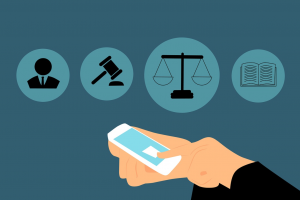It’s essential to recognize that AI is just beginning its journey, meaning the legal industry will continually evolve alongside this technology.
Artificial intelligence (AI) is now a permanent fixture in society, and its role in the legal field will only grow. Nearly 80% expect that AI will have a high or transformational impact on their work within the next five years.
The takeaway is clear: while AI still requires hefty refinement, it is becoming indispensable for firms aiming to remain efficient and competitive. Here’s what we can expect from the legal tech industry in 2025.
2025: The Year of Refinement for Legal Technology
We’ve watched many tech companies rush to release an AI product, often prioritizing flashy features over practical functionality. But they’re not fooling anyone. Lawyers recognize the technology’s shortcomings, with one survey revealing that nearly half of legal respondents are dissatisfied with AI’s performance.
It may seem boring, but lawyers appreciate a small functional feature over a brand-new, headline-grabbing platform with limited use. Legal professionals don’t have time for gimmicks. Legal tech vendors must decide: Are we innovating for the press release or our users? Those who prioritize the latter—enhancing their existing products and focusing on functionality — will capture the market.
In 2025, we’ll see more sophisticated, specialized AI-powered legal tech hit the market, focusing on practical applications that demonstrably improve efficiency and profitability for legal firms.
Small Firms Embrace AI
Although most American lawyers work in solo or small law firms, many legal tech companies still cater to big firms’ needs. A shift is coming.
More specialized legal tech platforms offering practical tools will drive AI adoption among small firms, allowing them to level up their practice. This transformation will democratize access to advanced legal tools. As smaller firms become more efficient, they can potentially lower costs and serve more clients, making quality legal representation more accessible and affordable for a larger segment of the population.
Increased Focus on Judiciary AI

We’ve talked so much about how lawyers will use AI. But what about judges? Judges are tasked with maintaining impartiality and upholding justice in a rapidly evolving technological landscape. They face increased scrutiny when integrating AI into their work, especially in sensitive areas like sentencing.
There’s a legitimate concern about AI bias and hallucinations and the lack of visibility into how algorithms reach conclusions. The legal field must carefully consider how judges can appropriately and justly leverage the technology, which should include clear protocols for transparency. So far, only 2% of over 1,600 U.S. district and magistrate judges have issued standing orders blocking or putting guidelines on the use of AI.
Guidance on using AI
With the proliferation of AI, legal professionals face a troubling lack of guidance on the subject. Attorneys will require clear direction on how to implement these technologies while adhering to professional standards.
The American Bar Association released its first Generative AI guidance in July, offering baseline suggestions rather than concrete rules. Most bar associations have yet to issue any guidelines. Hopefully, more clarity will come in 2025, but formal rules are likely years away given the rapidly changing technology.
In the meantime, legal professionals should apply the same supervisory diligence they use with human staff and choose legal-specific AI platforms with proper data safeguards. Ongoing education will be critical to ethically leverage this new tech.
AI doesn’t have to be limited to legal tasks. Legal professionals can also use it for nonbillable work like invoicing, timekeeping, document management and more. The ethical ambiguity in these tasks is significantly lower.
It’s essential to recognize that AI is just beginning its journey, meaning the legal industry will continually evolve alongside this technology. Nonetheless, this shift is exciting, and by engaging in conversations, the profession can work toward explicitly defining and expanding the responsible and effective use of AI.


Join the conversation!